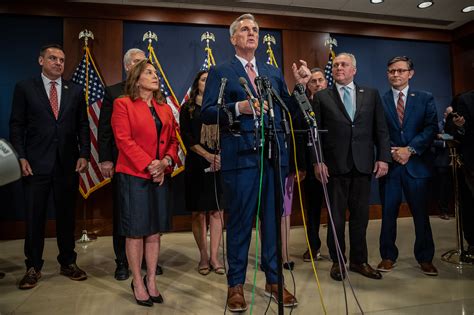In the bustling realm of Capitol Hill, where political agendas clash and legislative battles rage, the fate of electric vehicle (E.V.) policies in California hangs precariously in the balance. A recent Republican initiative aimed at dismantling these progressive measures has stirred up a storm, attracting both fervent support and vehement opposition from lawmakers.
Senate Showdown: The Battle for California’s E.V. Policies
The Golden State has long been at the forefront of environmental consciousness and sustainable initiatives, with its robust support for electric vehicles symbolizing a commitment to combating climate change and reducing carbon emissions. However, this commitment is now under threat as Republican senators push forward with a plan that could potentially undermine California’s pioneering efforts in promoting cleaner transportation alternatives.
As the sun sets over Sacramento, casting long shadows over the hallowed halls of power, whispers of dissent reverberate through the corridors. Advocates of clean energy nervously await the Senate showdown that will determine the future trajectory of E.V. policies in California.
A Divisive Issue: Navigating Political Crosscurrents
At the heart of this contentious issue lies a fundamental disagreement regarding government intervention in regulating environmental standards and fostering technological innovation. While proponents of the Republican plan argue for less federal oversight and more market-driven solutions, supporters of California’s existing E.V. policies emphasize the need for proactive measures to combat climate change and promote sustainability.
Amidst this ideological tug-of-war, voices from both sides clamor to be heard, each presenting compelling arguments backed by data, anecdotes, and impassioned rhetoric. The air crackles with tension as senators prepare to cast their votes—a pivotal moment that could reshape the landscape of environmental policy in California for years to come.
Expert Analysis: Navigating Complex Terrain
To gain deeper insight into this complex issue, we turn to Dr. Emily Hayes, an esteemed environmental policy analyst renowned for her expertise in renewable energy strategies. According to Dr. Hayes, “The debate surrounding California’s E.V. policies reflects larger tensions within our society about how best to address climate change.”
Dr. Hayes further elucidates that while market-based approaches have their merits in promoting innovation and efficiency, they may fall short when it comes to addressing collective action problems such as climate change—where individual incentives do not align with broader societal goals.
As we delve into Dr. Hayes’ insightful analysis, a nuanced understanding begins to emerge—a tapestry woven from competing interests, divergent ideologies, and aspirations for a greener future.
The Road Ahead: Charting a Course for Progress
As dawn breaks on a new day in California politics, uncertainty looms large over the fate of E.V. policies in the state. Will compromise prevail amidst partisan discord? Can legislators find common ground amid diverging perspectives?
Only time will tell as lawmakers navigate through treacherous waters fraught with political pitfalls and ethical dilemmas. In this crucible of democracy where ideas collide and alliances shift like sand dunes in a desert storm, one thing remains certain—the battle for California’s E.V. policies is far from over.

